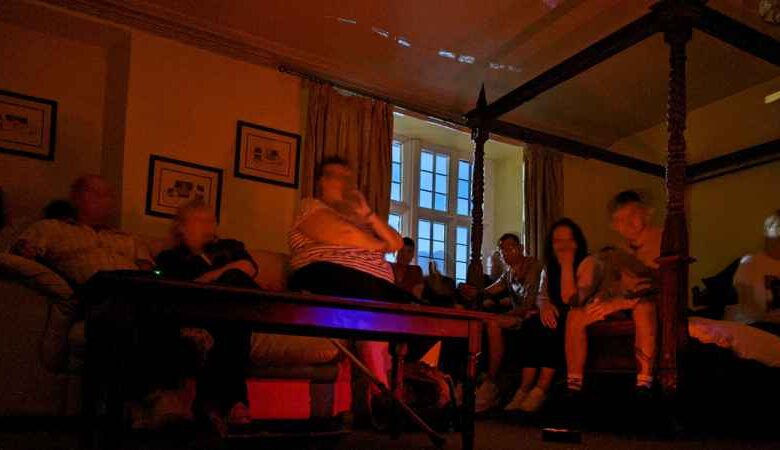The Role Of Vigils In Ghost Hunting

The setting for a vigil is often chosen based on historical significance, reported supernatural events, or anecdotal evidence suggesting paranormal activity. These sessions are often held in the dark, as many believe that reduced lighting enhances the sensitivity of human senses. There’s some truth in this, our hearing might become more acute in the dark, but often at the cost of completely eliminating what is arguably our most useful sense, sight.
Some suggest that spirits might be more active or able to manifest in environments with lower light due to the fact that they’re not drowned out by ambient light. Other investigators claim that conducting vigils in the dark is simply a matter of practicality since paranormal investigation is, for many, an evening activity. However, this explanation doesn’t make sense if a location has working lights.
During the vigil, investigators often “call out,” speaking aloud to address any spirits present and encouraging them to interact, either by showing themselves, making a sound, or interacting with ghost hunting equipment being used.
Investigators may choose to use devices like digital audio recorders to capture Electronic Voice Phenomena (EVP), which are sounds or voices that were not heard by the investigators at the time of recording but can be heard on playback. During EVP sessions, investigators often ask questions aloud, leaving pauses in the hope that spirits will use this opportunity to communicate. These recordings are later analysed to identify any unexplained voices or sounds.
Teams may also choose to use specialist ghost hunting equipment such as electromagnetic field (EMF) meters and REM-Pods, which alert investigators to any sudden fluctuations in the environmental conditions. Spirit boxes, a device that rapidly scans through radio frequencies, are also commonly used. It’s believed that spirits can use the static noise and fleeting bursts of radio broadcasts to communicate words or phrases.
Less technology-based vigils, sometimes referred to as “watch and wait sessions,” focus purely on the human senses rather than ghost hunting devices. A “watch and wait session” involves investigators sitting quietly in a reputedly haunted location to tune into the environment with their natural senses. The idea is to create a silent, undisturbed setting where individuals can focus entirely on what they might see, hear, or feel without the potential interference or distraction of technology.
Whether gadget-focused or watch-and-wait, both types of sessions often include the use of various tools, including digital voice recorders, infrared cameras, and video recorders, allowing teams to document audible and visual anomalies or movements that occur, even in the dark.
Modern-day vigils are in many ways similar to traditional séances, which gained popularity during the Victorian era, riding the wave of spiritualism that swept through Europe and North America. The aim of both séances and vigils is to communicate with spirits, both using a similar setting in a dark or dimly lit setting. Although more commonly associated with séances, both methods can involve sitting around a table or participants holding hands in a circle.
The main difference between the two methods is that vigils are generally conducted at allegedly haunted locations, whereas séances can be conducted anywhere and are typically led by a medium, someone who claims to have the ability to communicate directly with the deceased.
Vigils are a popular method for investigating hauntings due to their direct approach, accessibility, and relatively short duration. However, they are limited by their reliance on immediate and often subjective experiences, which can miss subtler or less frequent phenomena that require more extended observation and rigorous testing to uncover. Also, the very act of being present at a location can introduce noise pollution and unwanted movement, which can contaminate evidence and skew results.
These issues can be overcome by conducting long-term monitoring or controlled experiments, which are designed to capture more consistent, objective, and repeatable data across a broader timeframe. This can involve setting up cameras, audio recorders, and environmental sensors to monitor a location over extended periods to collect more comprehensive data than what might be collected during a single vigil. For instance, motion-activated cameras can be used to document visual phenomena such as unexplained movements without human interference. Similarly, continuously running audio recorders are ideal for phenomena like unexplained footsteps.
Despite the popularity of vigils in ghost hunting, skeptics argue that the method is flawed. The dark conditions often used during vigils can enhance suggestibility, leading to misinterpretations of mundane phenomena as paranormal. Psychological factors such as the power of suggestion, confirmation bias, and the expectancy effect can also lead investigators to perceive ghostly interactions where none exist.



